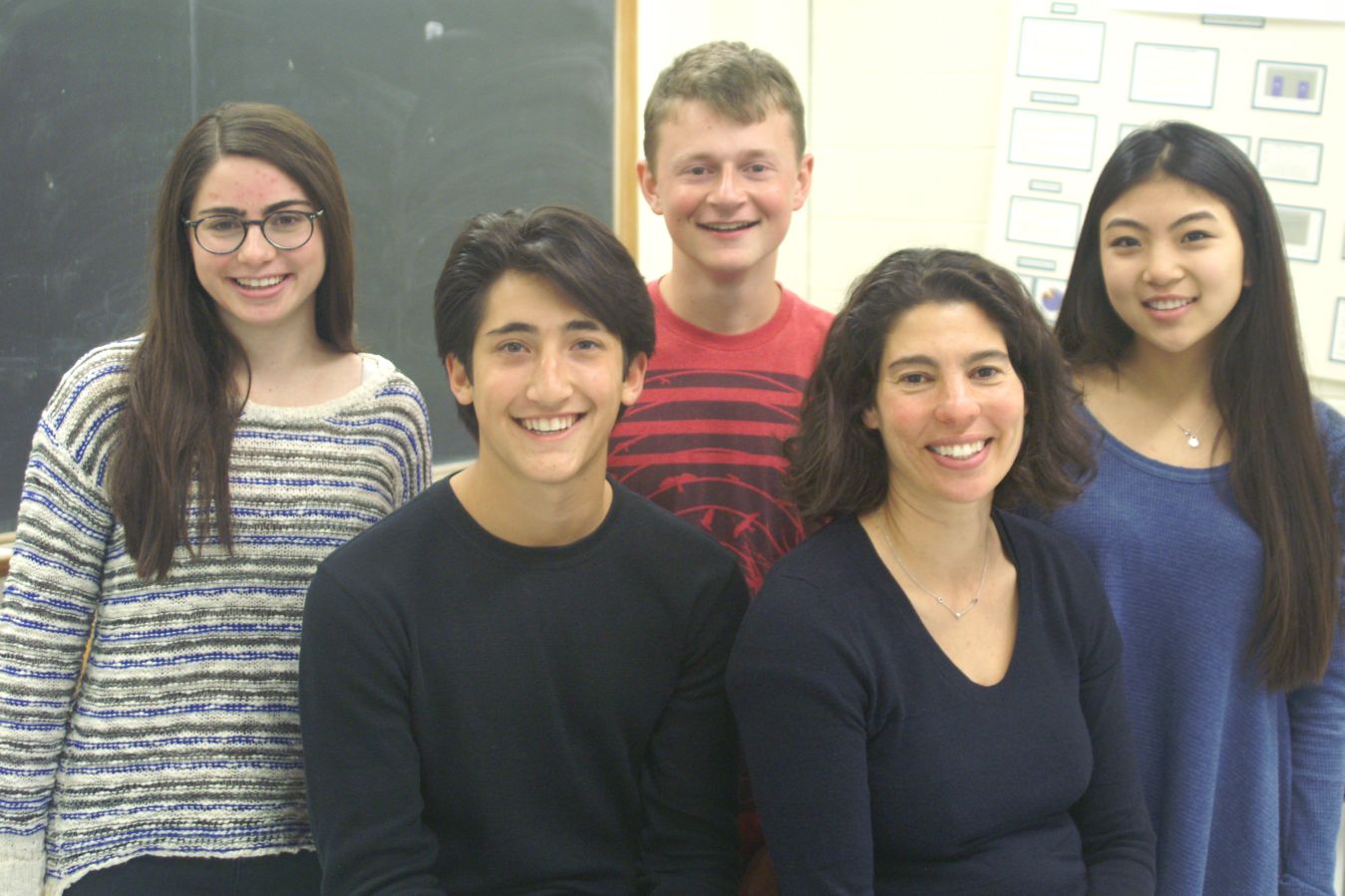They gathered last Wednesday at noon, the seven Roslyn High School students that entered this year’s Intel Science Talent Search and their mentor, district research coordinator Allyson Wesley.
They huddled around a computer and logged onto the contest website in search of the list of 300 participants that were named semifinalists.
They scanned the list, and the names David Michael Jaslow, Rachel Lauren Mintz, Jordan Rosen and Tiffany Sun appeared – four Roslyn School District semifinalists, tied with Great Neck for the most on Long Island.
“To have four [semifinalists] is certainly an honor, but to have four out of seven? That’s a tremendous percentage,” Wesley said. “But my seven were all strong. All could have been contenders.”
The four semifinalists, each 17, will receive a $1,000 award. An additional $1,000 each will go toward Roslyn High School.
On Jan. 21, Intel will name the 40 semifinalists who have advanced as finalists and attend a competition in Washington, D.C. from March 5-11 where they will compete for three medals of distinction awards of $150,000, three $75,000 second-place awards and three $35,000 third-place awards. All finalists receive at least $7,500.
The annual contest began more than 70 years ago. Past winners include eight Nobel Laureates, five National Medals of Science winners, two Fields medalists and 12 MacArthur Foundation fellows.
Jaslow, whose project analyzed how eager participants were to approve of various retirement savings plans, said he did not even expect to advance in the competition, let alone be the first name discovered on the list.
“I remember leaving the house and my mom asking if she should expect to hear from me about Intel, and I said, you know, don’t get your hopes up. And then I see my name and I thought it could have easily been a dream,” he said.
Rosen and Sun also conducted research grounded in psychology and sociology.
Rosen sought to determine whether teachers pass on their perceptions of intelligence onto their students, surveying district elementary school teachers and students based on criterion established in existing research.
Sun explored the role attractiveness, economic status and disability play in one’s approach to the Trolley Problem, an ethical thought experiment in which one determines whether to rescue five people tied to train tracks by diverting an oncoming trolley to another track with someone else tied to it.
In her experiment, participants would decide on who to save based on whether the single person tied to the alternate track – whom Sun presented as female in each exercise – was attractive, in favorable economic standing or in sound physical health.
“People were more likely to sacrifice the person who was plain, disabled or of low economic status,” she said, adding that she planned to continue the research by presenting a male tied to the secondary track.
The lone semifinalist to conduct a biological experiment was Mintz, who studied the effect of the chemotherapy drug Cisplatin on the kidney cells of patients with varying degrees of magnesium deficiency.
“[Being named a finalist] would be incredible to say the least,” Mintz said. “It’s certainly great to have your hard work recognized, but for me the idea that I’ve done something in the lab that can have a direct impact on patients’ lives [is even more rewarding].”



